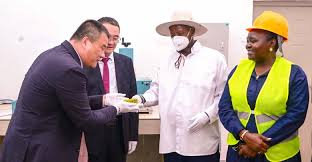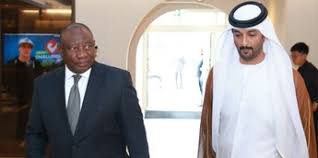President Yoweri Kaguta Museveni has announced Uganda’s readiness to engage in a food-for-medicine barter trade with the Republic of Cuba — a pioneering South-South cooperation model aimed at addressing the two nations’ mutual economic needs.
The deal, discussed during a high-level bilateral meeting on the sidelines of the 19th Ministerial Meeting of the Coordinating Bureau of the Non-Aligned Movement (NAM) in Kampala, will see Uganda export food crops such as maize and beans to Cuba in exchange for pharmaceuticals and medical supplies.
“We are ready. We are going to target the next financial year. We are going to start planning and we shall budget for it,” President Museveni said while meeting the Cuban delegation.
The visiting team was led by Bruno Rodríguez Parrilla, Cuba’s Minister of Foreign Affairs, who conveyed best wishes from Army General Raúl Castro and President Miguel Díaz-Canel Bermúdez, along with an official invitation for President Museveni to visit Havana.
Museveni emphasized that barter trade arrangements could serve as an innovative model for developing countries struggling with currency imbalances and global trade inequalities.
“Instead of waiting for foreign exchange to import vital medicines, we can use what we already have — food,” Museveni remarked. “This is the essence of South-South cooperation: helping each other with what we can produce.”
According to preliminary plans, the barter framework will be implemented under the National Enterprise Corporation (NEC) — the commercial arm of the Uganda People’s Defence Forces (UPDF).
NEC Managing Director Lt. Gen. James Mugira said initial consultations with Cuban officials had already identified key food items Uganda could export and categories of medicines Cuba could provide in return.
“These medical supplies will go directly to the Ministry of Health to boost healthcare delivery and reduce the import burden on Uganda’s budget,” Mugira confirmed.
The first shipment of food is expected to be prepared in the 2025/2026 financial year, pending technical assessments and budget approvals.
Uganda and Cuba share decades of diplomatic relations dating back to the 1960s. Cuba has previously supported Uganda in healthcare and education, particularly through the training of Ugandan medical personnel in Cuban institutions.
Foreign Minister Rodríguez said the barter initiative demonstrates both countries’ “commitment to economic independence and solidarity among developing nations.”
“This partnership is not only economic but ideological,” Rodríguez stated. “We are proving that cooperation between the Global South can achieve what others think impossible.”
The Cuban delegation also included Juan Humberto Macías Pino, Ambassador-Designate to Uganda, and Alberto Amoros Núñez, Head of the Cuban Sub-Saharan Africa Division.
Ugandan officials present were Dr. Monica Musenero, Minister for Science, Technology and Innovation, and Vincent Bagiire, Permanent Secretary of the Ministry of Foreign Affairs.
Analysts say the food-for-medicine plan could provide a lifeline for both economies:
• For Uganda, it offers a new export channel for surplus agricultural produce while easing the strain of importing costly pharmaceuticals.
• For Cuba, still affected by decades of U.S. sanctions and limited access to global markets, the deal provides food security and a reliable African trade partner.
Economist Dr. Sarah Byarugaba notes that barter arrangements like this could shield developing countries from volatile currency markets:
“When countries bypass the dollar and trade in value instead of currency, it promotes self-reliance and stabilizes essential supply chains,” she said.
The agreement also reflects the spirit of the Non-Aligned Movement, which advocates mutual cooperation, sovereignty, and independence from great power blocs.
During his NAM address earlier this week, Museveni called for a new era of “shared prosperity rather than dominance,” urging developing nations to trade directly and invest in each other’s growth.
The Uganda-Cuba barter framework could become a model for NAM member states, many of which face similar economic challenges under global trade systems dominated by Western economies.
Officials from both countries are expected to form a joint technical committee to finalize the commodities list, valuation mechanisms, and logistics before implementation in mid-2026.
If successful, the initiative could expand into agro-industrial products, vaccines, and biotechnology, areas where Cuba has significant expertise.
“This is not just a trade agreement — it’s a strategic partnership,” Museveni concluded. “We are building a bridge between Africa and Latin America.”



